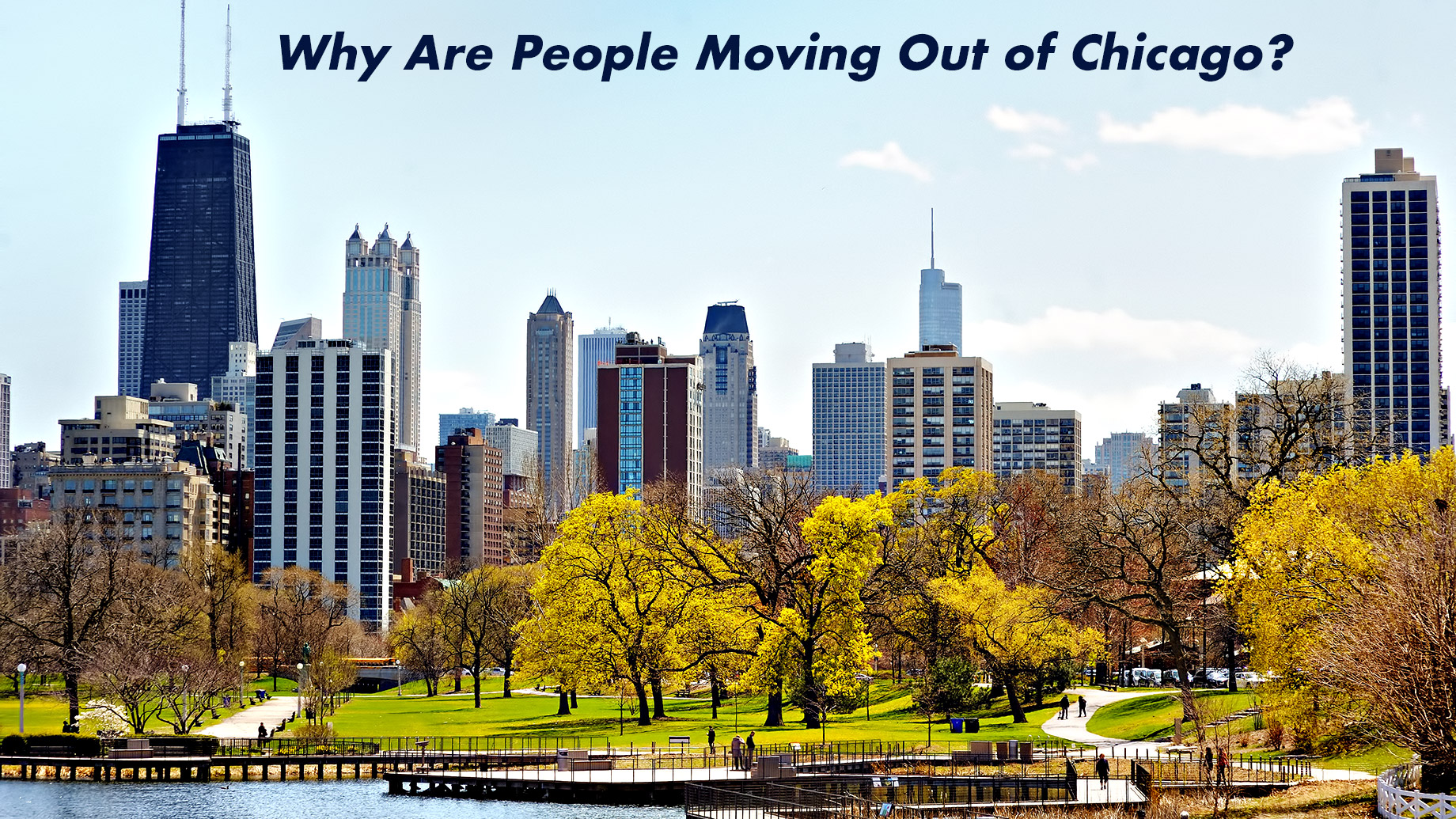
Roughly 2.7 million people live in the city of Chicago. While that number has historically grown alongside the promise of the city, over the last five years, we’ve seen the city’s population decline.
Chicago is often noted as being a bastion of diversity. The city has been globally praised for its art, food, and activities. So then, what underlying cause(s) could be pushing this moving out-of-Chicago trend?
As it turns out, despite Chicago’s many benefits, there are several reasons why a higher quality of life can be achieved in other pockets of Illinois and the country. If you’re curious to know what those reasons are, keep reading.
Below, we break down what’s motivating migration!
1. Bad Weather
You may have experienced winter where you’re from. Unless your hometown is close to Chicago, though, chances are, you’ve never experienced a Chicago-style winter.
In the last decade, temperatures in Chicago dropped to an average of 22 degrees between the months of December and March.
For most people, that constant bombardment of frostbite and snow is more than enough to get them to head down south.
2. Cost of Living
Living in a big city is always expensive. Chicago takes that reality to new heights, though.
According to recent data compiled by Numbeo, Chicago is the 53rd most expensive city to live in on the planet. While that may not sound bad, when you consider the number of cities in the world, being the 53rd most expensive isn’t something to aspire to.
That high cost of living extends to Chicago’s housing market, grocery prices, cost of activities, and beyond.
3. Poor Local Investment
Given Chicago’s shortcomings when it comes to business incentives, only large, “high-skill” organizations tend to risk leasing property in this expensive city and opening up shop. That trickles down to the kinds of jobs that are available to citizens, which tend to be high-skilled in nature.
An economy where investments are only being made by white-collar organizations means that blue-collar, middle-class workers find it hard to thrive and are effectively forced out of the city.
Couple that with investors being worried about Chicago’s criminal reputation, and you have a recipe for lackluster opportunities.
4. Crime
Crime is a moving out of Chicago catalyst that has spawned thousands of writings on its own. As a matter of fact, when we ask people why they think Chicago residents are contacting real estate agents at record rates so they can sell and leave, most assume it’s to escape crime.
While Chicago’s problems run deeper than just crime, criminal activities are undoubtedly a chief migration motivator. Chicago’s murder rates consistently outpace national averages.
5. High Taxes
Taxes are par for the course in large cities that boast democratic values. Whether you agree with those values or not, there’s no escaping the fact that large portions of your paycheck will disappear when you live and shop in Chicago.
As an example of Chicago’s prohibitively high taxes, the city recently retained its title of sporting the highest sales tax in the country. That rate is a whopping 10.25%.
Considering the city’s crime and high cost of living, many residents question how those tax dollars are being invested. That frustration then pushes skeptical people out of Chicago’s city limits.
6. Impaction
Even if you don’t mind Chicago’s high taxes or crime rates, chances are, you’ll mind feeling crowded. While the current exodus out of the city should help with this issue, there’s no denying that if you’re walking the streets of Chicago on a typical day, feeling like you’re being run over is likely.
Compare that feeling to moving to grow cities like Tuscon or Arlington that have space as far as the eye can see, and you can understand why people may opt for a less encroached-on lifestyle.
Of course, concerns with space aren’t a drawback that’s exclusive to Chicago. Impaction is a chief motivator to move that people leaving most major metropolitan areas share.
7. Separation from Nature
Living in a big city is great in that there’s always a lot to do. Once you get over the bars, restaurants, and walking tours, though, you begin realizing you’re surrounded by steel and concrete.
That reality can get grating.
City fatigue pushes many Chicago residents towards nearby, nature-infused towns like Utica or Naperville, both of which are within a couple of hours of the city but feature a completely different landscape.
8. Lack of Neighborly Vibes
If you’ve ever been to Chicago, you know first-hand that Mid-Western hospitality does not apply to this town.
Most people won’t look at you and say hello when you pass by. You often feel on guard as you traverse the city’s streets… Those realities and several others can lead to one feeling isolated despite the volume of people present.
Some can cope with those feelings of isolation. Others opt to discard them in exchange for feeling the wonder of living nearby strangers that seem to care more fully about their well-being.
Moving Out of Chicago Has Never Been Easier
We’ve shared eight reasons why moving out of Chicago has become a trend. Given COVID-19, we expect that trend to become more prevalent since many professionals are no longer bound by the constraints of their Chicago-based jobs.
We’ll see how the Chicago population trend plays out as time pushes forward and work-from-home culture carries on. In the meantime, if you’d like more insight into Chicago real estate, culture, or similar lifestyle topics, check out additional content on our blog.